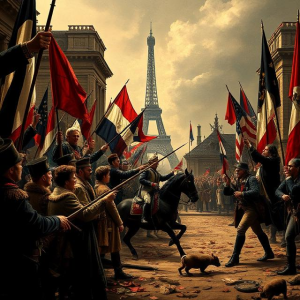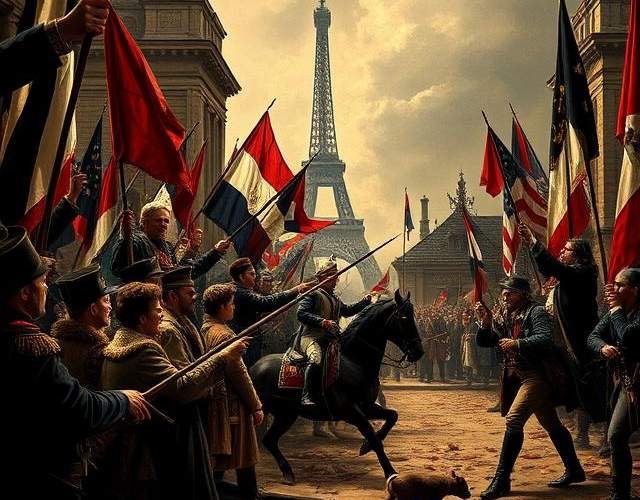As the revolution unfolded, it unleashed radical ideas about democracy and individual rights that inspired countless movements worldwide. Think of it as a spark; once it’s lit, it can ignite a whole forest. Countries from Latin America to Europe found themselves inspired by the cries for liberty coming from France. The ripples spread until they crossed oceans, shaping the political landscapes in ways that are still felt today.

Moreover, the revolution also reshaped social norms. The rise of concepts like citizenship and national identity began to take root. It paved the way for modern nations that prioritized the voices of their people. Picture this: from chaos emerged a new social order, one that recognized everyone’s worth. The French Revolution wasn’t just a historical event; it was the dawn of new possibilities, ushering in an age where the voice of the common man began to matter.
The Causes and Key Figures
When we talk about the causes, we’re often scratching the surface of deeper societal issues. It might be economic hardship, political unrest, or even cultural shifts. Picture it like a river: sometimes it flows smoothly, while other times, it hits a boulder, causing a turbulent current. Each of these obstacles represents the underlying causes that fuel discontent and demand for change. For instance, during the civil rights movement, the quest for equality wasn’t just about laws; it was born from a long history of oppression and the relentless desire for justice.
How It Influenced Modern Democracies
Fast forward a few centuries, and you see the Roman Republic stepping onto the stage. The Romans took democracy from the Greeks and added their unique spin. It wasn’t just about the elite making decisions behind closed doors. Citizens were given a voice, albeit a limited one, paving the way for the broader participation we cherish today. You could say that their political experiments were like mixing the perfect cocktail—each ingredient contributing to a fuller flavor of civic engagement.
Now, let’s hop over to the Enlightenment. Think of it as the Renaissance of thinking, where ideas of liberty and equality flourished. Enlightened thinkers like John Locke inspired revolutionaries and everyday folks alike to fight for their rights. This era transformed the very notion of government; it was about consent and representation, concepts that we often take for granted in our modern systems.

























Añadir un comentario